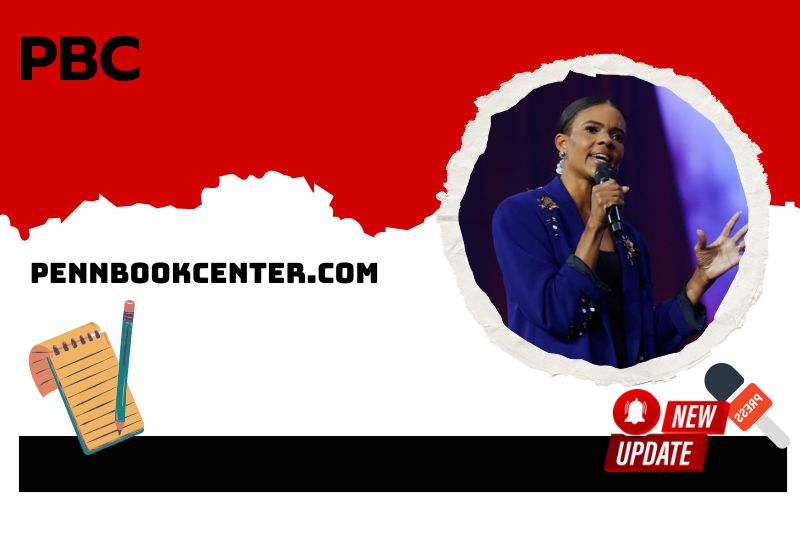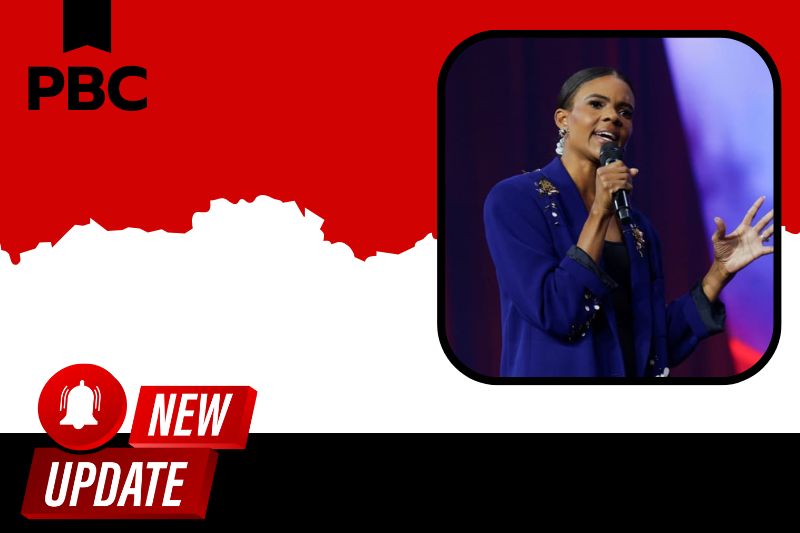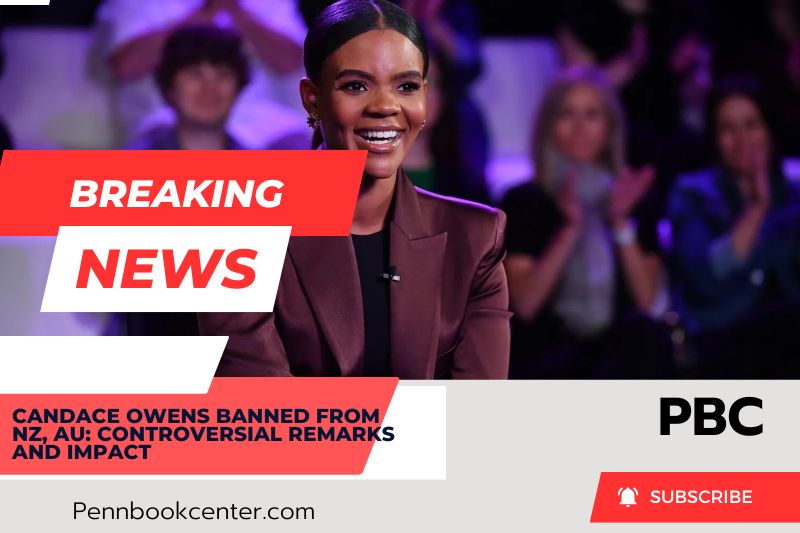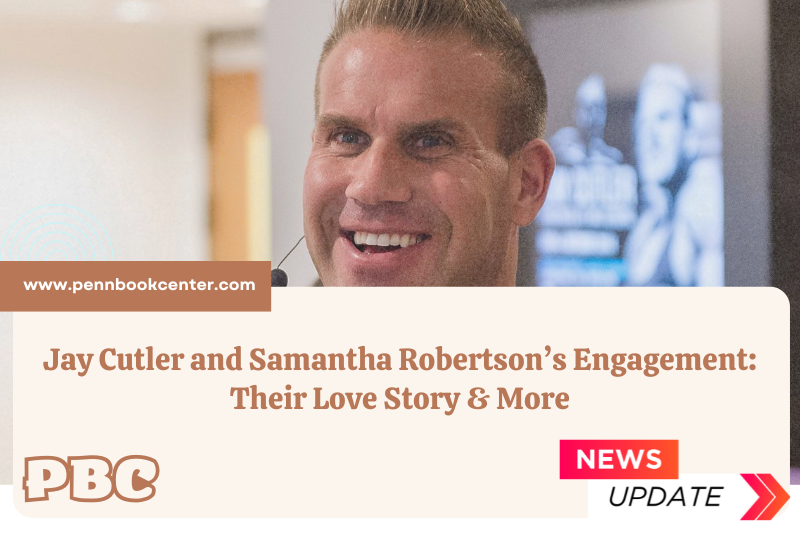Candace Owens, a conservative U.S. political commentator, recently faced bans from both New Zealand and Australia. These rejections were largely due to her controversial statements, particularly surrounding the Holocaust and other sensitive topics.
In this article, we’ll explore the details behind her visa refusals, the public response, and the wider implications on free speech.
Why Was Candace Owens Banned from New Zealand and Australia?

In recent weeks, Candace Owens found herself banned from entering New Zealand and Australia for scheduled speaking events. These visa refusals stemmed from remarks she made in the past, particularly concerning the Holocaust.
Owens, who has built a significant following through her outspoken conservative views, had planned a speaking tour across both countries in February and March next year.
Australia’s decision to deny her entry came first in October. The Australian government cited her controversial opinions about the Holocaust and Black Lives Matter as significant reasons for the ban.
Specifically, Australia’s Immigration Minister Tony Burke remarked that Owens had the potential to incite discord, mentioning her views on Nazi medical experiments during World War II and her inflammatory comments on Muslims.
Similarly, New Zealand’s immigration authorities followed suit and refused her visa application, echoing Australia’s concerns. The country’s authorities linked her remarks about the Holocaust and other inflammatory statements to their decision.
Interestingly, the promoter’s website still lists Owens’ events, showing no acknowledgment of these visa denials. This has raised eyebrows regarding transparency in the marketing of such events.
What Controversial Remarks Led to the Visa Refusals?
Owens’ comments about the Holocaust were among the most contentious factors leading to her visa refusals. In July, during a YouTube video, Owens minimized the scale of the Holocaust, which caused a backlash from many communities, particularly Jewish organizations.
Her statements denying Nazi medical experimentation on Jews led to widespread condemnation.
Additionally, Owens’ views on Black Lives Matter and feminism also played a part in her visa issues. Known for her opposition to both movements, she has openly criticized Black Lives Matter, calling it a “terrorist” group.
These views, alongside her outspoken stance on vaccines and immigration, have led critics to label her as a promoter of conspiracy theories and antisemitism.
Who Is Candace Owens and What Are Her Beliefs?
Candace Owens is a prominent figure in conservative political circles, known for her sharp critiques of liberal ideologies. With more than 3 million followers on YouTube, she has gained a significant platform where she discusses her views on a variety of issues, including politics, race, and social movements.
Her political beliefs are rooted in free speech and Christian faith, two topics she planned to discuss during her canceled speaking tour. Owens often criticizes movements like Black Lives Matter and feminism, questioning their societal impact.
Her support for free speech and criticism of cancel culture have also sparked debates, especially regarding her stance on controversial issues such as immigration and vaccines.
While her supporters admire her for her unapologetic defense of conservative values, her detractors accuse her of fueling division and promoting harmful ideologies.
Candace Owens’s public persona is undeniably polarizing, with supporters hailing her as a voice of reason and critics condemning her for spreading harmful rhetoric.
How Did the Media Respond to Candace Owens’ Visa Refusals?

The media’s reaction to Owens’ visa refusals was mixed. While some outlets, especially those aligned with her views, defended her right to speak freely, others criticized the bans, calling them an overreach on the part of New Zealand and Australia
The incident reignited debates about free speech and whether governments should restrict individuals based on their controversial remarks.
Social media also played a pivotal role in shaping the public’s perception of the visa bans. On platforms like Twitter and YouTube, Owens’ followers expressed anger and frustration over the refusal, accusing both countries of censorship.
Conversely, many journalists and activists supported the bans, citing her antisemitic remarks and overall divisive rhetoric as reasons for denying her entry.
What Are the Implications of Candace Owens’ Visa Rejections on Free Speech?
The bans on Candace Owens by New Zealand and Australia raise significant questions about the balance between free speech and national security.
While free speech is a fundamental right in many democratic nations, these incidents highlight the tension between this right and the responsibility of governments to maintain public order and safety.
Owens’ case is particularly contentious because it involves a public figure with millions of followers. When such figures make divisive statements, it can have a ripple effect, influencing public opinion and behavior.
Both Australia and New Zealand justified their actions by claiming that Owens’ presence could lead to social unrest and discord. This has sparked a broader discussion about how governments should handle controversial public figures who challenge established norms.
What Can We Learn from Candace Owens’ Visa Issues?
Candace Owens’ visa issues serve as a reminder of the power and responsibility that comes with a large platform. Social media influencers and public figures must be mindful of the impact their words can have, especially when discussing sensitive topics such as the Holocaust or Black Lives Matter.
Moreover, the incident sheds light on how countries like Australia and New Zealand evaluate the risk of allowing controversial figures into their borders. The decisions were based on the perceived threat Owens posed to national interest, an important factor in immigration policies worldwide.
Public figures who engage in controversial or harmful rhetoric may find themselves facing similar scrutiny, particularly if their views are seen as a threat to public harmony.
Conclusion
Candace Owens’ visa rejections from New Zealand and Australia highlight the complex intersection of free speech and national security.
If you’re interested in more celebrity news and updates, feel free to share this article, leave a comment, or visit us at Pennbookcenter. Stay informed with the latest in celebrity news and insights.




